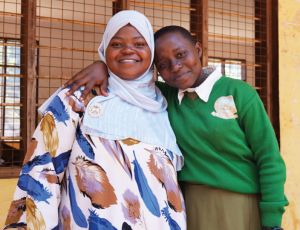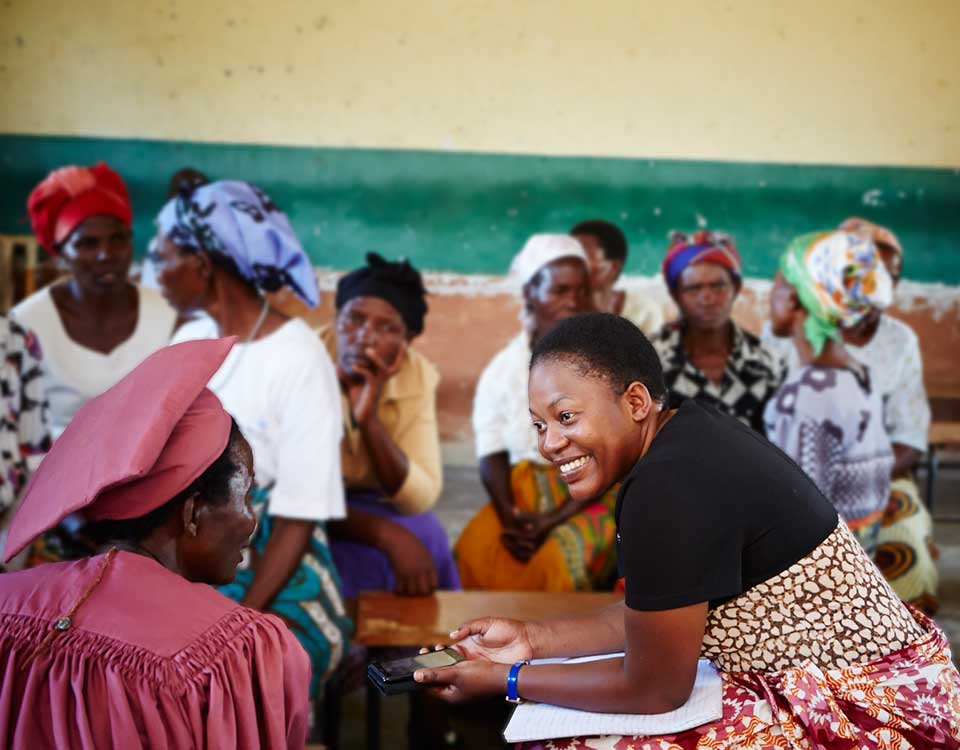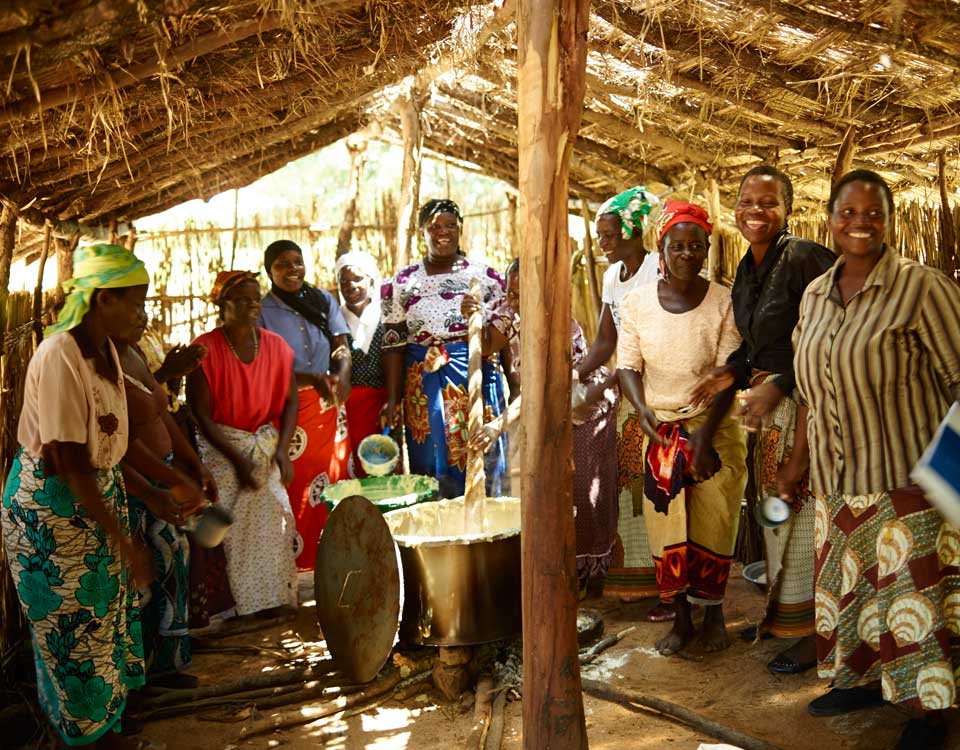
When she thrives, we all thrive
Together this giving season, we can make a difference that ripples outward to benefit everyone.

Data has even more power than we might recognize for poverty eradication, provided it is shared back with communities.
At SXSWedu® – the education conference and festival – in Austin, Texas, Camfed’s Ann Cotton addresses an audience of educators, asking them to contemplate the power imbalance inherent in the collection of international development data, which flows from poor to rich communities, from development agencies to donors and from the governed to the governing. Poor people often give away their personal data without being invited to participate in analysis or receiving conclusions. Ann argues that sustaining such asymmetric relationships undermines poverty eradication initiatives.
How do we begin to consider the ethics of questionnaires, of surveys, of research, when one side has the control and the prerogative regarding the collection, analysis and sharing of information or data? she asks.
Ann takes us on a journey from a classroom in rural Malawi to a poor village in Zimbabwe, where Camfed’s girls’ education program has its roots. She describes the life and death decisions poor families face daily; the effect of poverty on the psyche; the endless anxiety that is exacerbated by encounters with authorities that remind poor people of their inadequacy, collect data on their lives and never share the results. And she describes how each of these encounters diminishes poor peoples’ ability to grow beyond poverty.
“Poor people best understand their own lives. Let’s listen hard, and learn from them as to how, together, we can solve the colossal and growing problems facing us all,” says Ann. “Data has even more power than we might recognize for poverty eradication, provided it is shared back with communities. Let’s transform an extractive exercise into an interactive one. Let’s restore to people their fundamental right to own, understand and control their data and information. Such a matter of moral right is universal and never contingent on economic status… To be ethically defensible, data must be gathered through transparent social understanding and relationships.”
She talks about the confidence created among community members in sub-Saharan Africa who design, implement and monitor Camfed’s education programs. Camfed does not work with volunteers from outside. Camfed’s volunteers are all local people, who give their time to create change across their communities – over 121,000 volunteer activists across 115 partner communities and five countries. Why do they give what little time and resources they have? Because Camfed reflects back to individuals, families, and the community as a whole, their own capabilities, and builds on the capital already available, rather than imposing solutions without transparency or sustainability.

Mothers in rural Malawi providing nutritious porridge to hungry primary school children
So while Camfed provides comprehensive financial and mentoring support to help educate the most marginalized children, mothers in communities are uniting to provide nutritious meals for those children at school, helping to improve retention rates and learning, while encouraging ever more parents to get involved in their children’s education. Camfed supports them with start-up grants, or agricultural training, depending on local requirements. “School enrolment has risen. Attendance rates have risen. The status of the mothers has risen, not least in their own eyes. The initiative is highly cost-effective, and sustainable. The local chief, who has set aside the land to grow the food, is fully supportive because his authority has been acknowledged and respected,”Ann explains.
Data on this and many other Camfed programs, from primary to secondary education to entrepreneurship training, is collected by local enumerators using mobile phones, uploaded to Camfed’s program database, and shared with communities and government ministries. The best practice that is developed, and the increased agency of poor people, feeds into a virtuous cycle that leads to further initiatives, more demands on service providers, and more support for educating the most vulnerable children, especially girls.
“When a rural community can see the impact of its efforts to reduce child malnutrition, improve school enrolment and attendance and raise academic performance, the energy and enthusiasm is palpable and sustains investment,” Ann concludes.
Camfed’s inclusive partnership model, and its innovative use of data, is becoming the benchmark for development innovation, with poor communities leading on the delivery of change and justice at scale.
Margaret Monaghan $10.9
Helen Lea $157
Julia Thompson $100
Joan Goldfeder $211
Bonnie Riggins $10.9
Michael Higgins $13
Cheryl Johnson $5.6
Amy Casciano $10.9
Valerie Turner £40
joyce Davidson $16.1
FRANK BAUDINO $26.6
Markus Rockström €37.2
Chiara Starvaggi Cucuzza €37.2
Bonnie Hollrah $52.9
Karen Thomas $158